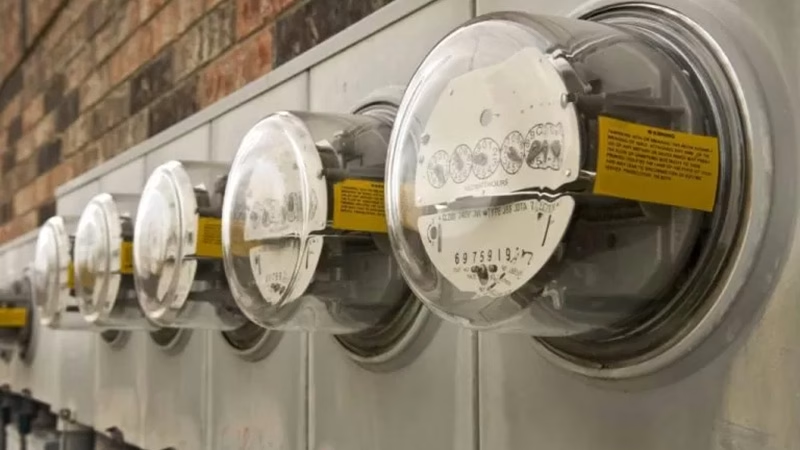Missouri’s energy affordability crisis demands urgent action to protect vulnerable families.

Access to electricity is not a luxury; it is a fundamental necessity for health, safety, and economic participation. Yet, for a growing number of Missourians, this essential service is becoming increasingly out of reach. An alarming rise in utility disconnections by Ameren Missouri has left thousands of households in the dark, highlighting a critical issue: the urgent need for a low-income utility rate to ensure equitable energy access for everyone.
This article will explore the staggering number of disconnections, examine the profound impact on low-income families, and advocate for sustainable solutions that can power our communities forward.
The Alarming Rise in Utility Shutoffs
Recent data reveals a troubling trend in Missouri. Ameren has disconnected a record number of households due to nonpayment, signaling a deepening energy affordability crisis. In 2023 alone, the utility provider performed over 129,000 residential disconnections for nonpayment, a sharp increase from previous years. This figure doesn’t just represent unpaid bills; it represents families forced to make impossible choices between keeping the lights on and buying groceries, medicine, or other necessities.
The problem is particularly acute for low-income households, who spend a disproportionately high percentage of their income on energy bills. This “energy burden” can be three times higher for low-income families compared to other households. When a heatwave strikes or an unexpected expense arises, these families have no financial cushion, making them highly vulnerable to disconnection.
The numbers paint a clear picture of a system that is failing its most vulnerable customers. These disconnections are not just a temporary inconvenience; they are a symptom of a larger structural problem that demands immediate attention.
The Ripple Effect of Energy Insecurity
Losing power has devastating consequences that extend far beyond the home, affecting public health, economic stability, and the well-being of the entire community.
Public Health at Risk
For many, electricity is a lifeline. It powers essential medical equipment for individuals with chronic illnesses, keeps life-saving medications like insulin refrigerated, and provides crucial heating and cooling during extreme weather. During Missouri’s hot and humid summers, a lack of air conditioning can lead to heat exhaustion and heatstroke, especially for children, the elderly, and those with pre-existing health conditions. A utility shutoff can quickly turn a financial struggle into a life-threatening medical emergency.
Economic and Social Instability
Energy insecurity traps families in a cycle of poverty. Without electricity, completing homework becomes nearly impossible for students, widening the educational gap. Adults may struggle to find and maintain employment without reliable internet access or the ability to prepare for the workday. The stress and instability caused by utility disconnections can also lead to long-term mental health challenges and housing insecurity, as families may face eviction if they cannot maintain essential utilities.
Furthermore, the costs associated with disconnection and reconnection—including fees and large deposit requirements—add another layer of financial burden, making it even harder for families to get back on their feet.
The Case for a Low-Income Utility Rate
The current assistance programs, while well-intentioned, are not enough to solve the scale of this crisis. The Low-Income Home Energy Assistance Program (LIHEAP) is a crucial resource, but it is chronically underfunded and can only reach a fraction of eligible households. A more permanent, structural solution is needed. This is where a percentage of income payment plan (PIPP), or a low-income utility rate, comes in.
A low-income rate structure would cap monthly energy bills for eligible households at an affordable percentage of their income. This approach provides several key benefits:
Predictability and Stability: Families would know exactly what to expect on their utility bills each month, allowing them to budget effectively and avoid falling behind.
Reduced Disconnections: By making energy bills manageable, a low-income rate would drastically reduce the number of shutoffs, protecting public health and promoting stability.
Improved Payment Rates: Studies in other states with similar programs show that when bills are affordable, customers are more likely to pay them consistently. This reduces administrative costs for utilities associated with collections and reconnections.
This isn’t a radical idea. Numerous states, including Ohio and Illinois, have already successfully implemented PIPP programs, proving that they are a viable and effective tool for tackling energy poverty.
Building a Path Toward Equitable Energy
Implementing a low-income utility rate in Missouri is a critical step toward ensuring that no family has to choose between electricity and other basic needs. This solution not only provides a safety net for vulnerable households but also builds a more resilient and equitable energy system for the entire state.
However, creating this change requires collective action. We need to look beyond temporary fixes and address the root causes of energy insecurity. This includes investing in energy efficiency programs and weatherization services for low-income homes, which can permanently lower energy consumption and reduce bills. By making homes more energy-efficient, we can provide long-term relief and reduce the overall strain on the grid.
A Call to Action for Missouri
The record number of disconnections by Ameren Missouri is a clear call to action. It is time for policymakers, regulators, and community members to come together and demand a more just energy future.
Policymakers and Regulators: We urge the Missouri Public Service Commission and state legislators to take decisive action. Authorize and implement a percentage of income payment plan (PIPP) for low-income customers of regulated utilities like Ameren.
Community Advocates and Residents: Raise your voice. Contact your elected officials, share this information with your networks, and support local organizations advocating for energy justice. Public pressure is essential to driving policy change.
Access to energy is a human right. By implementing a fair, affordable rate structure, we can ensure the lights stay on for every Missourian, fostering healthier families, stronger communities, and a more stable economy for all.
#EnergyJustice #LowIncomeRate #MissouriNews.


